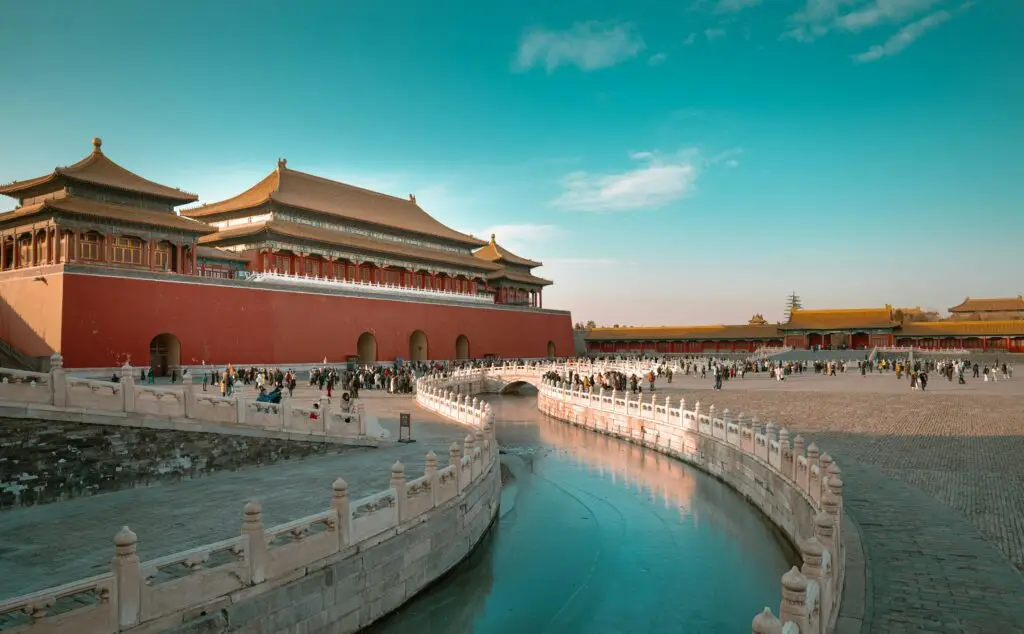When travelers think of China, they often picture the Great Wall, the Forbidden City, or Shanghai’s skyline. Yet beyond these icons lies a deeper journey—the chance to explore Daoist (Taoist) culture in China, a living philosophy that has shaped the nation’s history, spirituality, and way of life for more than 2,000 years. Rooted in harmony with nature, balance of Yin and Yang, and respect for the natural way, Daoism (Taoism) is not just ancient wisdom—it is something you can still experience today while traveling in China.
Taoist Mountains: Where Nature and Spirit Meet
One of the best ways to experience Daoist culture in China is by visiting its sacred Taoist mountains. For centuries, places like Mount Wudang in Hubei, Mount Qingcheng in Sichuan, and Mount Hua in Shaanxi have been regarded as the heart of Daoist practice. Travelers who hike these mountains encounter not only breathtaking landscapes but also ancient Taoist temples, monks practicing Tai Chi at sunrise, and quiet moments where the philosophy of harmony with nature becomes real.
Mount Wudang, a UNESCO World Heritage Site, is especially famous as the birthplace of Wudang martial arts and Tai Chi, while Mount Qingcheng is celebrated as one of the cradles of Daoism itself. Visiting these mountains is both a cultural and spiritual journey.
Taoist Temples and Living Traditions
Taoist temples in China offer travelers a window into this profound spiritual tradition. At Beijing’s White Cloud Temple, the country’s most important Daoist monastery, or Shanxi’s Yongle Palace with its stunning murals, visitors can witness centuries of devotion and ritual. Many Taoist temples remain active, with priests in flowing robes tending incense, chanting scriptures, and guiding visitors in quiet reflection.
Here, travelers can also learn about practices like Daoist meditation, inner alchemy, Tai Chi, and Qigong—all designed to cultivate harmony between body, mind, and nature.
Daoist Philosophy in Daily Chinese Life
Even outside temples and mountains, Daoist philosophy flows through everyday Chinese culture. The practice of Tai Chiin city parks, the principles of Feng Shui in home and urban design, and the balance of Yin and Yang in traditional Chinese medicine all come from Daoist teachings. For travelers, joining locals in a morning Tai Chi session or visiting a traditional apothecary can be just as enriching as touring a temple.
How to Travel and Experience Daoist Culture in China
For those seeking more than sightseeing, Daoist cultural travel in China offers immersive experiences:
Hike Taoist mountains like Wudang or Qingcheng for nature and philosophy combined.
Visit Taoist temples to witness rituals and learn from practicing Daoist monks.
Join Tai Chi or Qigong sessions to feel the Daoist principle of balance firsthand.
Explore Chinese medicine and tea culture, rooted in Daoist harmony with nature.
Travelers who embrace the Daoist spirit—moving slowly, observing deeply, and finding joy in simplicity—discover that this philosophy isn’t locked in the past, but alive in modern China.
Exploring Taoist culture in China is more than a journey—it’s an experience of harmony, nature, and timeless wisdom. Whether walking sacred mountains, meditating in quiet temples, or simply observing Daoism’s influence on daily life, you’ll uncover one of the most authentic and meaningful cultural dimensions of China.

